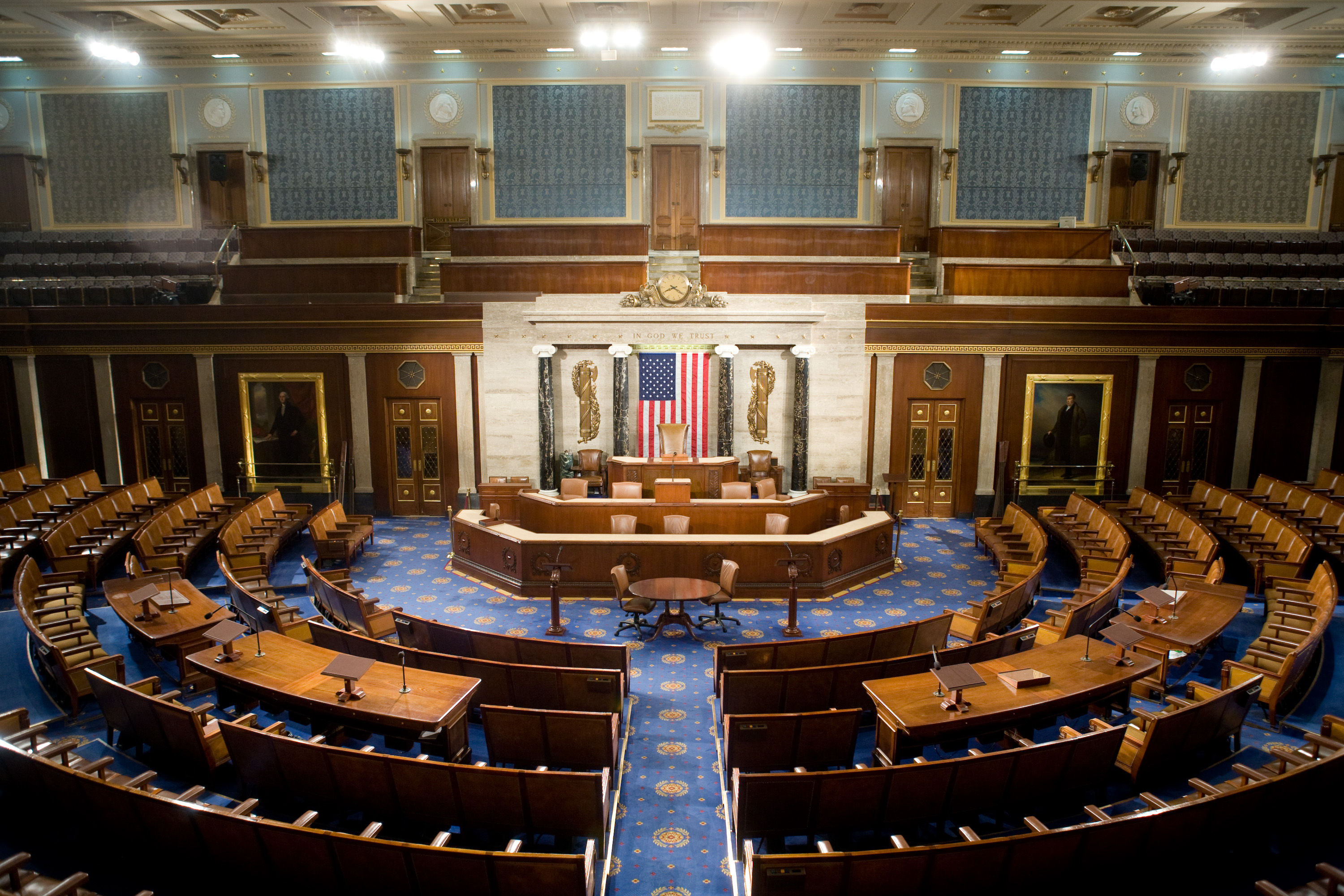5 possible Election 2016 outcomes
What happens if the GOP keeps the House and Senate and wins the White House? Or if the Democrats seize the Senate but can't quite take the House?


A free daily email with the biggest news stories of the day – and the best features from TheWeek.com
You are now subscribed
Your newsletter sign-up was successful
If the GOP nominates Donald Trump, it may well crater the party's chances of taking the White House in November. But it could have far broader effects than that. As The Week's Paul Waldman writes, nominating Trump makes a Democratic Senate in the fall a real possibility. And even the seemingly impervious House of Representatives is beginning to look vulnerable, according to the Cook Political Report, which recently shifted its rating of a number of races towards Democrats. Democrats are looking at the tantalizing prospect of unified government — though it remains a real long shot.
Six years ago, in 2010, we saw a Tea Party wave election. Many of those Tea Party-backed GOP senators are now up for re-election, which means Republicans are defending many more seats than Democrats. There are 24 Republican incumbents facing re-election in the Senate, versus only 10 Democrats. Republicans have a 54-46 majority, which means that Democrats need to flip five seats — or four, if there's a Democratic vice president to break a tie — to control the Senate. The Cook Political Report lists six Republican seats and one Democratic seat as toss-ups. It will be challenging for Democrats to flip the Senate, but hardly impossible.
The House is a different story. Republicans have a 30-seat majority; the Democrats would need some sort of GOP apocalypse to win the chamber back. But they might just have one in Trump. The Cook Political Report lists 14 Republican seats as toss-ups, versus only three Democratic seats. A pickup of 15 or so seats seems possible; 30, however, seems more than a stretch.
The Week
Escape your echo chamber. Get the facts behind the news, plus analysis from multiple perspectives.

Sign up for The Week's Free Newsletters
From our morning news briefing to a weekly Good News Newsletter, get the best of The Week delivered directly to your inbox.
From our morning news briefing to a weekly Good News Newsletter, get the best of The Week delivered directly to your inbox.
Still, given Trump-fueled Republican chaos, anything is possible. Here are a few potential outcomes, from least likely to most likely.
1. The GOP wins the White House, the Senate goes Democratic. This is not going to happen; if Trump or Ted Cruz overcome their standing in polls and somehow take the White House, it's going to be a bad, bad year for Democrats across the board. The chances of the Democrats winning the House while losing the presidency are even more remote.
2. Democrats win the House, Senate, and White House: This is a real long shot — Democrats would have to essentially sweep all contested House races. But if it comes to pass, unified control of the legislative branch would obviously make a Democratic president's job a lot easier. For the first time since the mid-1960s, Democrats would clearly control the legislative, executive, and judicial branches. (While Democrats controlled both houses of Congress in Obama's first two years, the Supreme Court still leaned conservative.) Hillary Clinton, who has campaigned in part as a pragmatist who could accomplish some of her goals in the teeth of Republican opposition, would instead face the unfamiliar prospect of actually being able to enact Democratic policies — a public health care option, a stimulus bill, higher taxes on the wealthy, the Sanders free college plan, and so on. Even immigration reform or gun control might be possible.
3. The GOP wins the White House and retains both the House and the Senate. You'd think unified GOP control of the executive and legislative branch would be really good for Republicans. Given the presidential candidates on deck, though, there's a non-negligible chance of intra-party backstabbing, recriminations, and general chaos. A continuation of the Republican primary season, in other words. This is one strong reason why the GOP might try to nominate a more mainstream Republican candidate at the convention: Marco Rubio, or Mitt Romney, or perhaps someone like Bill Frist. If they manage to do that, and then win unified control, they'll end up doing what the Democrats would do with unified control — passing a whole raft of conservative priorities. But if Trump or Cruz, both of whom are loathed by much of the GOP establishment, wins, all bets are off.
A free daily email with the biggest news stories of the day – and the best features from TheWeek.com
4. The GOP keeps the House and Senate, but Dems keep the White House: In this scenario, Democrats would probably still pick up a couple Senate seats. And that might give the Senate Republicans an incentive to be less obstructionist. As Jonathan Bernstein points out, the GOP is blocking the Garland nomination not so much out of ideology as out of senators' terror that they'll face a primary challenge from the right if they are seen as working with the White House. Primary paranoia is the main reason GOP senators won't even meet with Garland. They're afraid he'll give them compromise cooties.
If a few Republican senators lose in the general election, though, and if their losses are seen as being tied to the Garland nomination, suddenly intransigence may start to look like it has some downsides. A Senate in which Republicans are more paranoid about general elections than about primaries would be a much more functional Senate, even if Republicans remain in charge.
5. The GOP keeps the House, but Dems take the Senate and keep the White House: The Senate has already removed the minority's filibuster power for many appointments, and if Republicans continued to block a Democratic president's Supreme Court nominee, Democrats would surely remove the filibuster as an option for Supreme Court picks as well. It's likely Ruth Bader Ginsburg would retire before the 2020 election, and it's conceivable that Anthony Kennedy might as well. With the House in Republican control, there wouldn't be much hope for sweeping legislative advances, but the Democrats would plausibly have a chance to lock in control of the top court for a generation.
If Democrats take the Senate and the White House, it's also almost certain the House Republican majority will be smaller. Now, you might think that a smaller majority would mean more moderation — but there's reason to believe it won't. The House now has a few dozen very conservative members who are reluctant to vote with the GOP leadership on… well, on anything other than repealing ObamaCare, pretty much. And that was just enough holdout members to make it impossible for former Speaker John Boehner to pass legislation with Republican votes alone. Before he left the speakership, Boehner was forced to push through budget bills with Democratic votes. That strategy helped make him unpopular with his caucus, and led to his resignation.
Speaker Paul Ryan has so far avoided similar obstruction from his right flank, in part because Boehner pushed through a budget deal before he left. But when Ryan needs to increase the debt ceiling in March 2017, he may face a House GOP purged of members from purple districts like Rod Blum in IA-1 and Cresent Hardy in NV-4, and who have incentives to work with House leadership in order to appear reasonable and effective. The radicals, in other words, would hold an even greater balance of power in the caucus.
Noah Berlatsky is a freelance writer whose work appears in The New Republic, The Guardian, and other venues. He is the author of Wonder Woman: Bondage and Feminism from Rutgers University Press.
-
 How the FCC’s ‘equal time’ rule works
How the FCC’s ‘equal time’ rule worksIn the Spotlight The law is at the heart of the Colbert-CBS conflict
-
 What is the endgame in the DHS shutdown?
What is the endgame in the DHS shutdown?Today’s Big Question Democrats want to rein in ICE’s immigration crackdown
-
 ‘Poor time management isn’t just an inconvenience’
‘Poor time management isn’t just an inconvenience’Instant Opinion Opinion, comment and editorials of the day
-
 The billionaires’ wealth tax: a catastrophe for California?
The billionaires’ wealth tax: a catastrophe for California?Talking Point Peter Thiel and Larry Page preparing to change state residency
-
 Bari Weiss’ ‘60 Minutes’ scandal is about more than one report
Bari Weiss’ ‘60 Minutes’ scandal is about more than one reportIN THE SPOTLIGHT By blocking an approved segment on a controversial prison holding US deportees in El Salvador, the editor-in-chief of CBS News has become the main story
-
 Has Zohran Mamdani shown the Democrats how to win again?
Has Zohran Mamdani shown the Democrats how to win again?Today’s Big Question New York City mayoral election touted as victory for left-wing populists but moderate centrist wins elsewhere present more complex path for Democratic Party
-
 Millions turn out for anti-Trump ‘No Kings’ rallies
Millions turn out for anti-Trump ‘No Kings’ ralliesSpeed Read An estimated 7 million people participated, 2 million more than at the first ‘No Kings’ protest in June
-
 Ghislaine Maxwell: angling for a Trump pardon
Ghislaine Maxwell: angling for a Trump pardonTalking Point Convicted sex trafficker's testimony could shed new light on president's links to Jeffrey Epstein
-
 The last words and final moments of 40 presidents
The last words and final moments of 40 presidentsThe Explainer Some are eloquent quotes worthy of the holders of the highest office in the nation, and others... aren't
-
 The JFK files: the truth at last?
The JFK files: the truth at last?In The Spotlight More than 64,000 previously classified documents relating the 1963 assassination of John F. Kennedy have been released by the Trump administration
-
 'Seriously, not literally': how should the world take Donald Trump?
'Seriously, not literally': how should the world take Donald Trump?Today's big question White House rhetoric and reality look likely to become increasingly blurred
